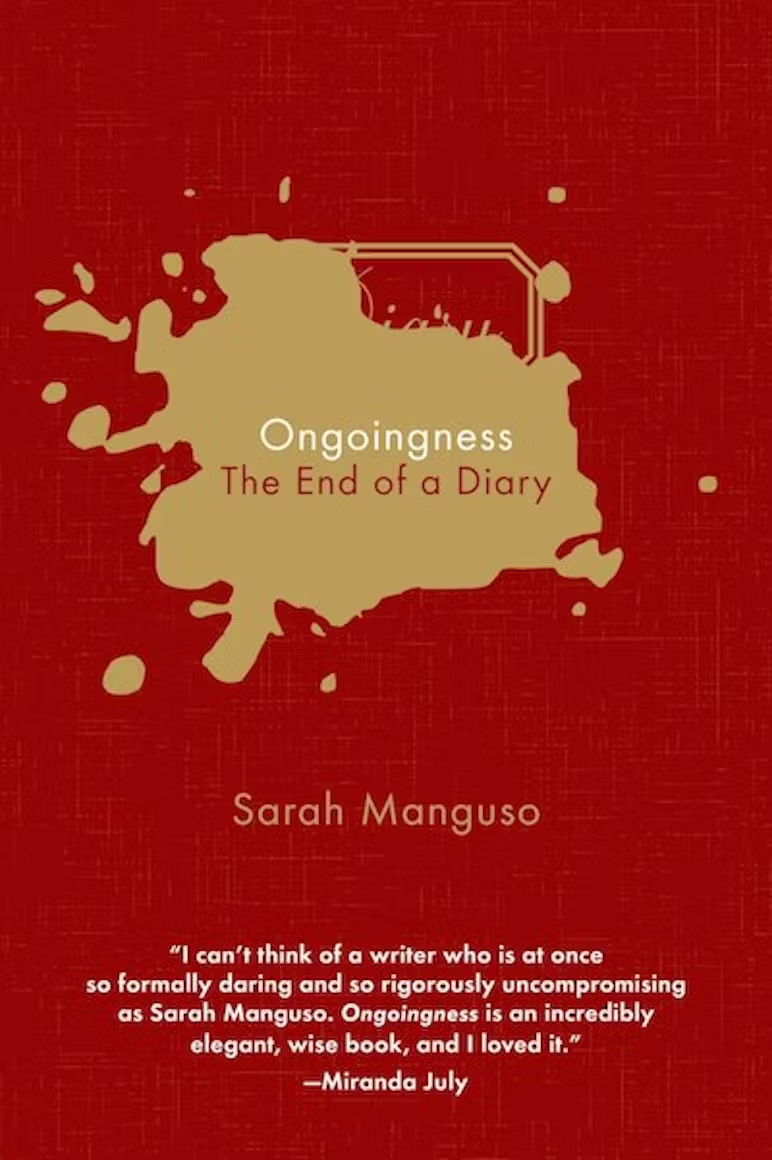(For anyone who’s ever tried to write themselves into existence — and then realized they were already here.)
Sarah Manguso’s Ongoingness is the kind of book you finish in one sitting and then immediately open again, like a compulsive diary entry you’re not done editing. It’s short, yes — 100-something pages of spare, breathless reflections — but what it lacks in length, it makes up for in existential whiplash. This isn’t a memoir, not really. It’s a philosophical spiral in prose form. A minimalist binge. A very literary panic attack about time, memory, and the human need to document.
Manguso, known for her poetic nonfiction and aversion to fluff, frames the book around the end of her obsessive journaling habit — a habit that lasted 25 years and filled over 800,000 words. That’s roughly twelve Infinite Jests worth of daily self-interrogation, which makes Ongoingness feel like the opposite of what it describes. The not-writing about the writing. The diary about quitting the diary.
And that’s the tension that drives the book. Manguso isn’t just grappling with the end of a project — she’s mourning the version of herself who believed that recording her life could somehow save it from disappearing. “I wrote so I could say I was truly paying attention,” she confesses, before acknowledging that the act of writing often pulled her away from the very moments she was trying to preserve. The result is a meditation on memory and meaning that feels both profound and slightly itchy, like an existential mosquito bite.
If you’re the kind of person who’s ever kept a diary, deleted a diary, then started a Google Doc called “Definitely Not a Diary,” this book will speak directly to the part of your brain that thinks in timestamps and unfinished thoughts. Manguso’s sentences are clean to the point of sterility, but they still cut deep. She doesn’t embellish — she removes. What’s left is language that’s been boiled down until only the psychic residue remains.
There’s no plot. No character arc. Barely any chronology. But that’s kind of the point. Ongoingness resists narrative in the same way life does. It floats, it doubles back, it skips. It reads like memory actually feels — fragmented, slippery, and full of contradictions. Especially as Manguso becomes a mother, and the tight control of her diarist self starts to unravel under the relentless now-ness of caring for a newborn. That part hits hard. Suddenly, the book becomes less about writing life and more about living it — an arc so subtle it could almost pass you by if you weren’t paying attention.
Which, of course, is the whole problem.
At the center of Ongoingness is this gnawing, unresolvable question: If you don’t write it down, did it even happen? And conversely: If all you do is write it down, did you even happen?
For a book so slim, Ongoingness is densely philosophical — but not in a grad-school way. More in a lying-awake-at-2-a.m.-wondering-if-your-teenage-LiveJournal-still-exists kind of way. It’s smart without being smug. Introspective without tipping into self-indulgence. And deeply unsettling, in the way that all good mirrors are.
Final verdict:
If you love Annie Dillard, Maggie Nelson, or the kind of Twitter thread that makes you sit in silence for twenty minutes after reading, Ongoingness is worth your time. Just don’t expect it to resolve anything. This book doesn’t end. It lingers. Like the question it asks. Like life. Like you, probably, flipping back to page one.







